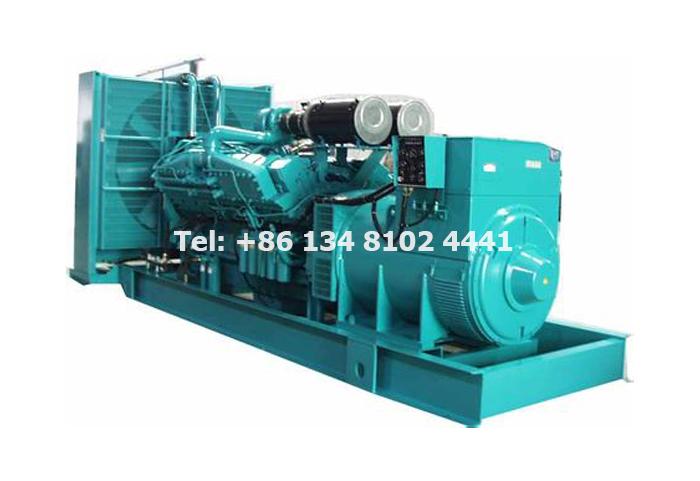Key Questions to Ask When Ordering Diesel Generators
When ordering diesel generators, it's essential to ask the right questions to ensure you select the best option for your specific needs. From power requirements to maintenance considerations, asking the following key questions will help you make an informed decision.
1. What is the Required Power Output?
Determining the required power output of the diesel generator is the first step. Consider both the continuous power needed for ongoing operations and the peak power required during startup or high-demand periods.
2. What is the Application and Usage Profile?
Understanding the application and usage profile of the generator is crucial. Whether it's for standby backup power, prime power in remote locations, or continuous power in industrial settings, the generator's specifications and features should align with your intended use.
3. What are the Environmental Conditions?
Consider the environmental conditions in which the generator will operate. Factors such as temperature extremes, altitude, humidity levels, and exposure to dust or corrosive elements can impact performance and longevity.
4. What Fuel Type is Available?
Diesel generator sets are commonly used due to their fuel efficiency and availability. However, it's essential to verify the availability of diesel fuel in your location and consider alternative fuel options if necessary.
5. What are the Noise Level Requirements?
Noise level requirements vary depending on the application and location of the generator. For residential or urban settings, generators with low noise emissions are preferred to minimize disruption to occupants and neighbors.

Linear Dampers vs Industrial Shock Absorbers
Electric Blankets: A Comprehensive Guide
What Are the Solar Energy Storage Systems of the Balcony?
10 Facts You Should Know about Solar Energy Systems
10 Things You Should Know About Solar Panel Efficiency
4 Tips for Selecting the Right High-Voltage Synchronous Motors
The Advantages of Implementing Energy-Efficient Lighting Solutions
6. What Emission Standards Must be Met?
Ensure the diesel generator complies with relevant emission standards and regulations in your area. Modern generators incorporate technologies to reduce emissions and minimize environmental impact.
7. What is the Maintenance Schedule and Requirements?
Understanding the maintenance schedule and requirements is crucial for ensuring the generator operates reliably over its lifespan. Inquire about routine maintenance tasks, recommended intervals, and the availability of service and support.
8. What is the Warranty Coverage?
Review the warranty coverage provided by the gensets manufacturer or supplier. A comprehensive warranty can provide peace of mind and financial protection against potential issues or defects.
9. What is the Expected Lifespan and Reliability?
Evaluate the expected lifespan and reliability of the diesel generator based on factors such as build quality, component durability, and historical performance data. A reliable generator with a long lifespan can offer better value over time.
10. What Support and Services are Available?
Inquire about the support and services offered by the manufacturer or supplier, including technical support, spare parts availability, and emergency response capabilities. A reliable support network is essential for minimizing downtime and maximizing uptime.
In conclusion, asking the right questions when ordering diesel generators is crucial for selecting the most suitable option for your requirements. By considering factors such as power output, application, environmental conditions, fuel type, noise levels, emissions, maintenance requirements, warranty coverage, lifespan, and support services, you can make an informed decision that meets your power generation needs effectively.
Understanding Glue Gun Heating Elements: Functionality, Types, and Applications
10 Questions You Should Know about Electric Vehicle Charging Systems
4 Tips to Select the Perfect Synchronous RPM
Squirrel Cage Rotor vs. Wound Rotor: Key Differences Explained
How Do Advantages and Disadvantages of Electric Vehicles Work?
10 Facts You Should Know about Induction Motor Efficiency
Essential Induction Motor Parts: FAQs and Solutions Explained
Related Articles









Comments